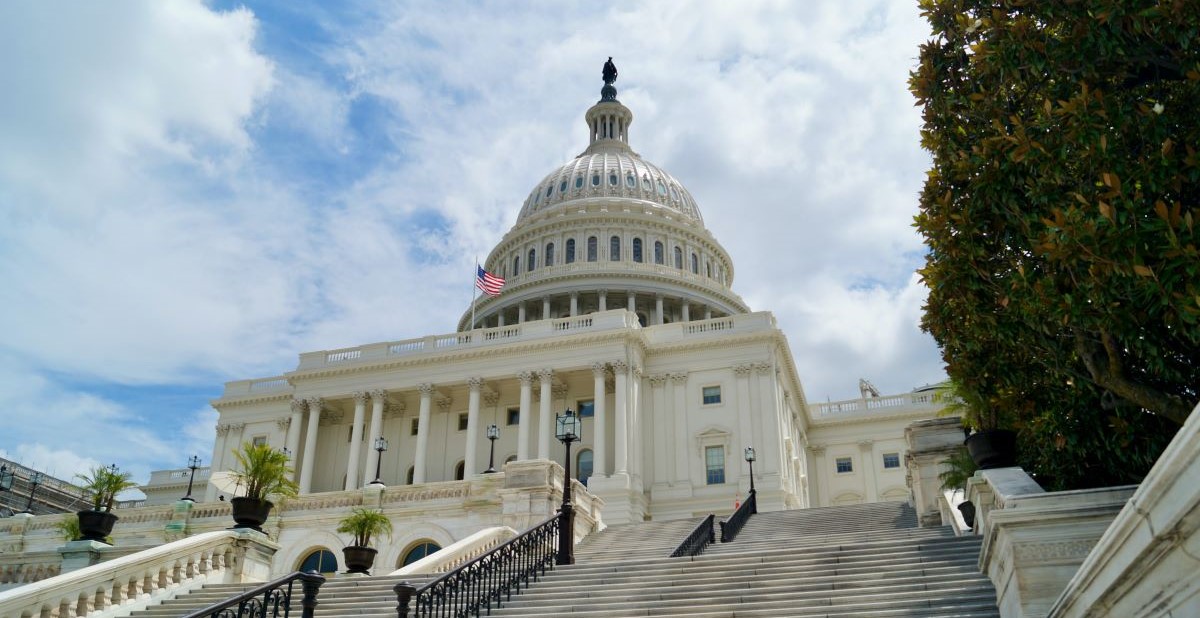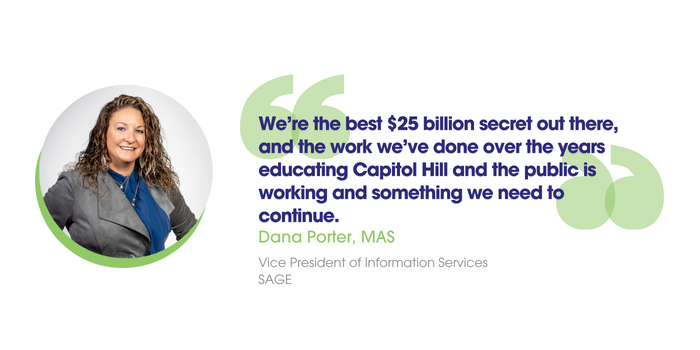Promo Leaders Discuss Industry’s ‘$25 Billion Dollar Secret’ At L.E.A.D.

Technically, Dana Porter, MAS, SAGE’s vice president of information services, will be attending PPAI Legislative Education Action Day (L.E.A.D) in Washington on behalf of the Promotional Products Association Southwest (PPAS) and the Houston Promotional Products Association (HPPA). But when she meets with legislators on Capitol Hill, she and her peers will be not only representing those associations but the entire promotional products industry.
- With a number of topics on the agenda, the first priority of L.E.A.D. is to inform legislators and their staffs about the size and importance of the industry, not only to the U.S. economy but to the roughly half a million Americans it employs.
“We’re the best $25 billion secret out there, and the work we’ve done over the years educating Capitol Hill and the public is working and something we need to continue,” says Porter, who has attended L.E.A.D. multiple times. “Our industry consists of 96% small businesses, so I make sure to point out how much of an economic impact we have in their district, state and throughout the country.”
- L.E.A.D. will be held May 13-14 and consists of sit-downs scheduled by PPAI with lawmakers and PPAI members and staff to discuss pending legislation and issues relevant to the promo industry.
This year’s L.E.A.D. participants will cover a number of topics pertaining to U.S. trade policies. Among those issues will be conversations around specific tariffs and how promo companies are affected by them.

Advocating And Educating
Tony Shereda, MAS, vice president of sales at QMI Group, will be attending L.E.A.D. for the first time this year, and he says that it is his passion for promo that sparked the urge for him to participate.
“The main thing that led me to volunteer to attend this year’s L.E.A.D. is my love of the industry,” Shereda says. “The only way to continue to elevate and grow the industry is to advocate on its behalf, especially to people who can make laws or rules that would hurt it.”
Last year was the first in-person L.E.A.D. since 2019, and it included over 80 meetings between promo representatives and legislators. Porter says that the in-person meetings often provide an opportunity to surprise legislators with how much promo is already in their lives.
“There’s something about being able to meet with lawmakers and their staff on Capitol Hill face-to-face that takes the impact to the next level,” Porter says. “Every legislative office we are in is covered in promotional items, so being able to point them out and share our stories seems to always hit home.”
Laws and policy are driven by how legislators consider the issues, and L.E.A.D. provides the rare opportunity to help them see those issues through the eyes of promo.
“Education around the impact that our industry has on the country, not only in economic terms but also how our medium shapes perceptions of brands and influences people and decisions is imperative,” says Shereda. “By going to Capitol Hill and educating our legislators on what we do, how important what we do is and how it impacts their constituents, it elevates the industry as a whole. While it may not change every vote that we want to have go our way, I know that if we say nothing then we will never be heard.”

Tariffs On The Agenda
Beyond education, the L.E.A.D. delegates will be discussing U.S. trade and how specific policies impact the industry. Among the specific trade policies that will be discussed are:
- Section 301 China tariffs – The additional taxes placed on businesses that choose to do business with China during the Trump administration has a major impact on the promo industry. While exclusions have been made to the tariff, PPAI has been on the record with the Americans for Free Trade calling for a “clear and transparent exclusion process.”
- Section 232 tariffs – Section 232 of the Trade Expansion Act of 1962 empowers the president to act unilaterally on trade matters in the instance of a national security concern. The Biden administration has signaled an increase in tariffs on Chinese steel and aluminum.
- Renewing the Generalized System of Preferences (GSP) program – A coalition of American companies and trade associations, which educates policy makers on behalf of American companies and workers, its program expired December 31, 2020.

